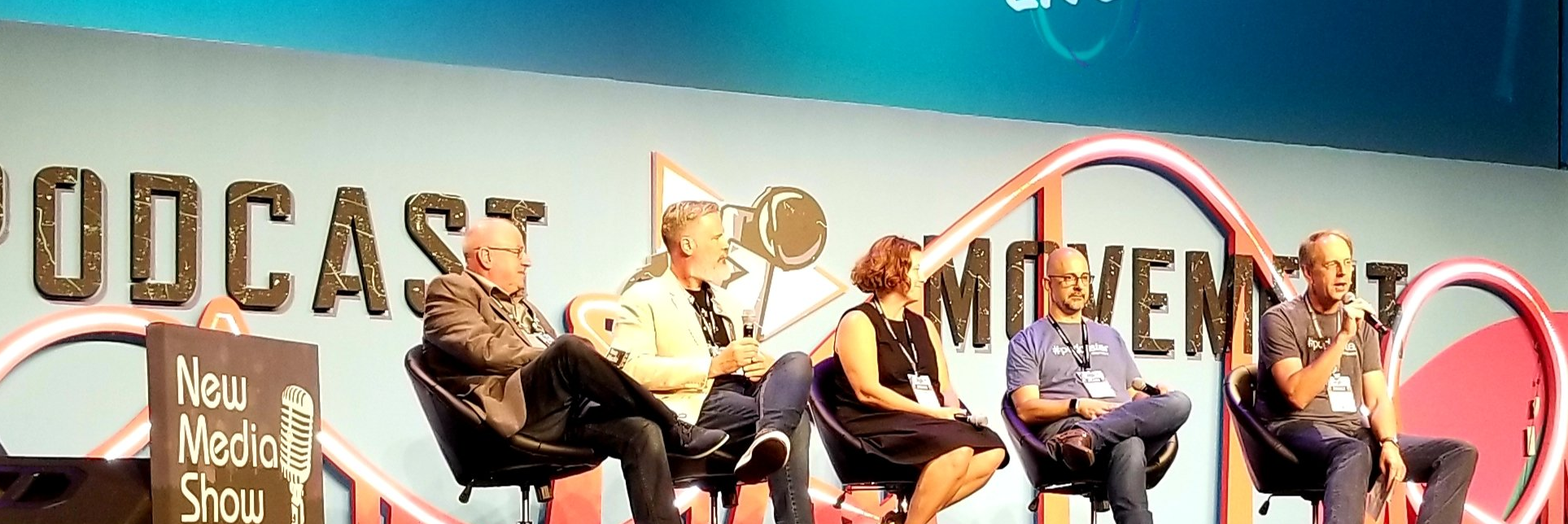Since the early days of podcasting, many have wished for and aspired to make a good living from producing and distributing podcasts. Many a podcaster has failed to achieve that goal and has hung up the towel on trying to earn a good living or build a small company around the fun and exciting podcasting space. I have seen many people and companies come and go since before podcasting really even started. Expectations for the scale and advertiser support just did not match reality. Podcasting certainly did not “Kill the Radio Star” like Wired Magazine proclaimed on its cover back in 2005.
The podcasting/on-demand audio industry will make hundreds of millions or even one day billions in revenue once advertisers and distribution platforms have a consistent third-party standard for understanding and reporting download’s, play duration, specific playback devices and geo-targeting abilities to do what is called in radio “copy splitting”. These are the elements that drove broadcast radio to the 16 billion dollar industry it still is today. This usage and audience measurement metric data needs to be verified by detailed user studies by trusted research firms like Arbitron and Nielsen Research, as the large media buying agencies still operate on those principles.
The specific parts of the industry positioned to generate the most revenue and profit the most are generally the same as now: content providers and networks providing high quality content with top talent with a strong existing audience following offline and online. We are also seeing a few top publishing, hosting and metrics tools providers that are trusted by content providers and advertisers getting solid and growing revenue streams. I think that those that can create a content network with talented hosts, who can build authentic audience trust, deep “friendship level” engagement and entertain, will make hundreds of millions of dollars from major Fortune 500 brand advertisers and sponsors. Many major brand advertisers are beginning to give on-demand audio podcasting a shot, as a radio advertising replacement strategy.
Monetization will happen from a variety of revenue streams, as outlined above, but mostly it will be the larger major content provider networks and shows will make the most revenue. The aggregator distribution (iTunes, Stitcher and others) will continue to struggle, but will grow revenue from getting into partnerships with content providers at a deeper level to get connected to advertiser revenue. The other ways these aggregator platforms can grow revenue is via offering in-app purchases, audience donation/fan loyalty shares and selling merchandise and/or offering live event ticket transactions. This part is the real weakness in the industry today and will be the key to creating the most user-friendly software experiences on mobile devices and in-cars. This is going to be the last place that is able to monetize in a way that will be healthy and really propel the industry to higher levels of revenue in the future.
I believe that Apple has been the company to profit most from Podcasting. Apple did not invent podcasting, but did make it what it is today with millions of daily users accessing podcasts through very expensive and highly profitable devices. Apple can make or break this industry right now and for the foreseeable future. It is rumored that Apple Podcasting could be moving to Android and, with a move like that; it could give the podcasting industry a big audience boost. It is true that Google has not put any effort into the podcasting market, because Google considers YouTube their podcast play. Android is clearly the biggest potential growth opportunity. It has lagged without a first-party podcast experience. Although Stitcher and others have made some in-roads into Android, it has remained a missed opportunity.
I believe that in the next 12 months, the on-demand and podcasting market will be quite different than today. The shift around consumption of audio content to mobile devices and beyond the desktop computer is a significant development. The entry of players that have big budgets will create a big impact and other dominant streaming internet audio players will jump into the on-demand talk audio market soon to drive the audience and revenue even higher.
We all need to start getting used to the phrases “on-demand audio” and “on-demand talk”, and the term “Podcasts” as important industry terms, as I am hearing them more and more. The term “Podcast” and “Podcasting” are not going away and never will, but these other terms will help this industry become the financial success we all want it to become.

Twin milestones I am grateful for: our migration to PodcastOne and my learning of and from the genius Rob Greenlee. Rob exudes a confidence which comes from vast experience, excellence, and expertise and he is the catalyst for my making “on-demand audio” and “on-demand talk” part of my daily vocabulary.